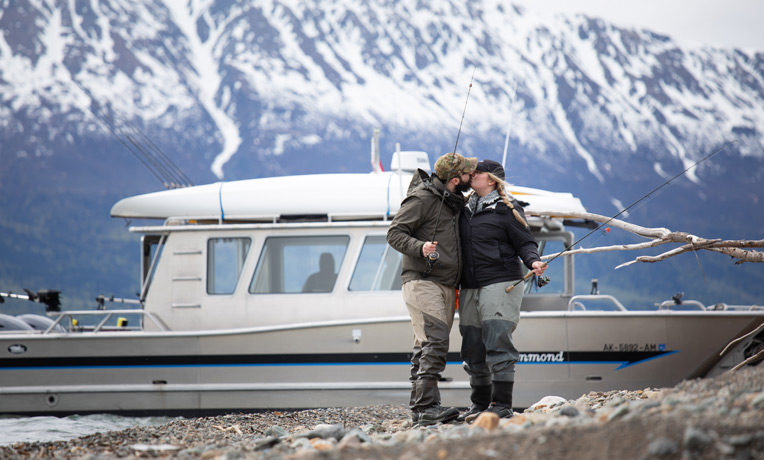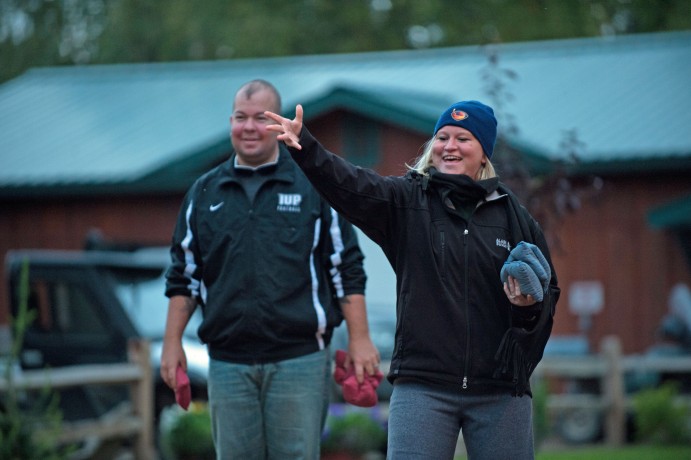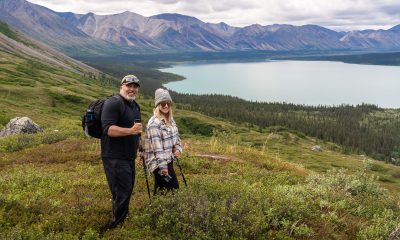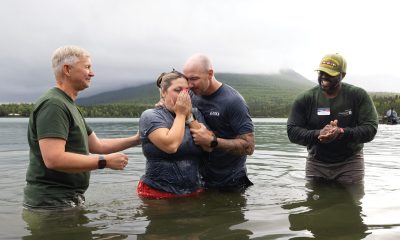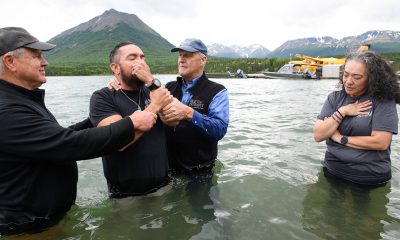Operation Heal Our Patriots helps a military couple lean on their faith to help deal with a combat injury
Marine Corporal Anthony Owens was a little lonely on his first deployment to Afghanistan. So, a fellow Marine’s girlfriend connected him to her roommate, Ashley.
Ashley thought they’d just become long-distance friends. But when the couple started a relationship through Skype, which allowed them to talk via video over the Internet, it went way better than either of them expected.
A couple months later Anthony came home on leave. He met Ashley in person for the first time on October 2, 2009—and the two got engaged that same day.
Anthony then went back to Afghanistan, finished his deployment, and returned to marry Ashley the following May. It was a dream.
But in March 2011, their lives changed. The nightmare began.
Ambush!
Anthony had just started his second deployment in Afghanistan. He was operating a mine-resistant, ambush-protected vehicle (MRAP) providing security and supplies for military engineers building a road in Helmand Province. They ran over 200 pounds of explosives planted by the Taliban.
The vehicle shot into the sky, barrel rolling three times before hitting the ground. The gunner was thrown out of the vehicle and eventually lost his left leg below the knee.
Equipment caught fire. Debris started raining down on Anthony in the driver’s seat. He was dazed and disoriented. He had flash burns to his face and his upper back was still smoldering. The smell was horrible.
Once he cleared the debris off, Anthony began to help the other passengers, including his staff sergeant who had suffered a traumatic brain injury and was lying on top of him. Marines from other vehicles in the convoy rushed to the scene too.
Anthony’s best friend, Lance Corporal Richard Pancake, suffered a broken back and concussion in the attack. Anthony crawled back into the vehicle and pulled him out.
During the ordeal, pain from his burns came in waves—sometimes relenting, sometimes searing. Nonetheless, as they came under fire from a disorganized Taliban ambush, he managed to strategically position his friend Pancake against the vehicle to shield him from danger.
The Marines returned fire. About 15 minutes later, British forces medevacted the wounded to safety. After being operated on in Afghanistan, they were flown to Germany. From Germany, Anthony was taken to San Antonio, Texas, where the Marine Corps sends soldiers to recover from combat burns. It all took just four days.
Dealing with Deep Wounds
“One step brought tears to my eyes,” Anthony says of those excruciating first days in Texas. The motion of each step irritated the still raw third-degree burns along his upper back.
 Despite the pain, Anthony’s newlywed wife Ashley pushed him to try walking twice a day. And she learned to treat and care for his burns. Thanks to her tenacious encouragement, Anthony went home from the hospital just three days later.
Despite the pain, Anthony’s newlywed wife Ashley pushed him to try walking twice a day. And she learned to treat and care for his burns. Thanks to her tenacious encouragement, Anthony went home from the hospital just three days later.
“I didn’t like being told I had to leave. I figured he should be with me,” she said.
But when they got home, the real wounds emerged. They were just as painful as the burns, but much more difficult to treat. Anthony was diagnosed with post-traumatic stress disorder (PTSD).
“When he first got back, he used to get up in his sleep and put on all his military gear and go to the door,” Ashley said. “I would scream to get his attention and he wouldn’t wake up. I had to shake him to wake up. He doesn’t remember any of it. We eventually had to put his gear in storage.”
More than a year later, nightmares still disturb his sleep three to four times on a normal night. He wakes up out of breath, as if running. The terror doesn’t leave Anthony alone during the day either.
“All day I think about what happened. I can’t stop thinking about it,” he says. “The smallest stuff gets under my skin. I get mad to the point I black out. It’s not good.”
Ashley “does not cower to his episodes,” Anthony said, and maybe that helps. The same fighting spirit that helped Ashley and Anthony leave the hospital in three days is evident in how they confront PTSD and its effects on their marriage.
 The couple visited Samaritan Lodge Alaska last summer for a week as part of the Operation Heal Our Patriots project. Through the devotions and marriage resiliency classes they were challenged to lean on each other even more and focus on Christ. They learned that when they each grow closer to Christ as individuals, they will be drawn closer to each other as well. “A cord of three strands is not quickly broken” (Ecclesiastes 4:12b, NIV).
The couple visited Samaritan Lodge Alaska last summer for a week as part of the Operation Heal Our Patriots project. Through the devotions and marriage resiliency classes they were challenged to lean on each other even more and focus on Christ. They learned that when they each grow closer to Christ as individuals, they will be drawn closer to each other as well. “A cord of three strands is not quickly broken” (Ecclesiastes 4:12b, NIV).
“God is in our marriage,” Ashley says. “But we can go deeper with God in our relationship.”
In San Antonio, Anthony seeks counseling from their pastor, which he says helps him develop a Christian perspective on his circumstances.
“Talking with the preacher helps me more than going to the psychiatrist or the social worker,” he said. “Looking at the spiritual side helps me best.”
Ashley and Anthony say they’ve seen many military marriages end in divorce and are thankful Samaritan’s Purse started the Operation Heal Our Patriots project.
“Couples who’ve been through what we’ve been through or similar may blame God for what happened,” Ashley said. “A program like this can help them realize that God is there, and He’s guiding them. Even though they’re going through difficult times, there’s a light at the end of the tunnel. God is there.”
